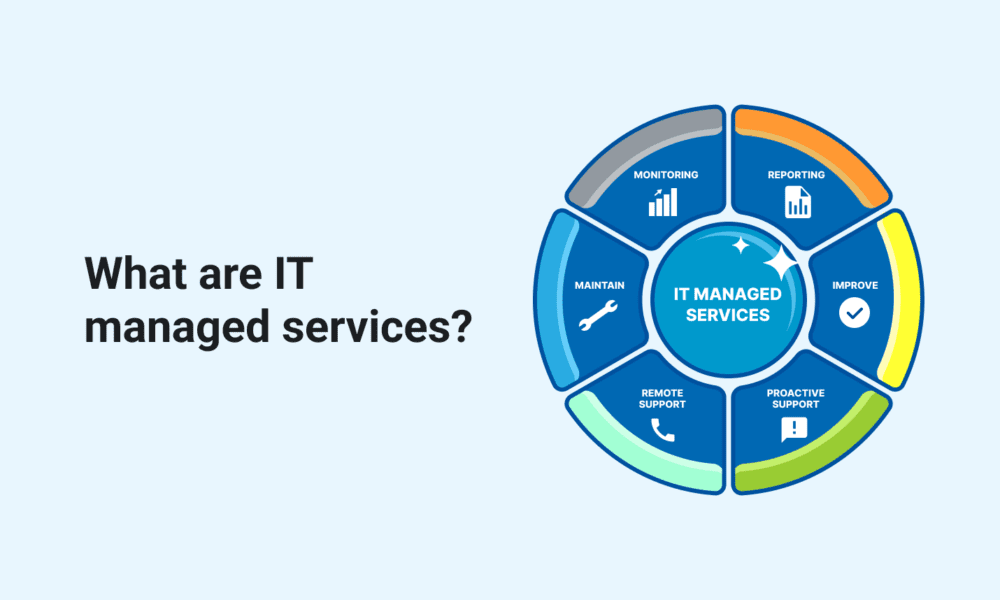Organizations are under more and more pressure to be safe, efficient, and competitive in today’s fast-paced, technology-driven business environment. Managed services have become viable for companies looking to reduce risks, boost productivity, and improve their IT operations. Companies can maximize their potential by adopting managed services in today’s digital era. Effective IT infrastructure management is critical to businesses achieving their objectives regardless of scale. Fortunately, many services are available to help companies to achieve their goals. This article highlights the numerous benefits of managed services and how they enable companies to thrive in the ever-changing business landscape.
Proactive IT Support and Maintenance
Access to proactive IT assistance and maintenance is one of the main benefits of using managed services. Managed services Denver adopts a proactive IT management approach by implementing robust monitoring and maintenance practices. Organizations can proactively detect and resolve potential challenges by adopting this approach before they escalate into significant obstacles. It not only guarantees smooth functioning but also boosts overall efficiency and effectiveness. This proactive approach helps minimize downtime, improve system reliability, and ensure optimal performance of IT systems and applications, enabling businesses to operate smoothly and efficiently.
Cost Efficiency and Predictable Budgeting
Managed services offer cost-efficient IT solutions to help businesses reduce overall IT expenditures while improving service quality and reliability. Organizations can save money by hiring and training internal IT workers, buying pricey gear and software, and maintaining IT infrastructure by outsourcing IT administration to a third-party service. Additionally, managed services often operate on a subscription-based model, allowing businesses to predict and budget their IT expenses more effectively, with no unexpected costs or surprises.
Enhanced Security and Compliance
Businesses of all sizes are always concerned about cybersecurity threats, and controlling security risks calls for specific knowledge and resources. Managed service providers offer advanced security solutions and expertise to help companies protect their sensitive data, networks, and systems from cyber threats, malware, and other vulnerabilities. Furthermore, by putting best practices into practice and offering frequent security audits and assessments, MSPs may help companies comply with industry laws and data protection standards like GDPR, HIPAA, and PCI DSS.
Scalability and Flexibility
Businesses’ IT requirements adapt as they expand and change. Scalability and flexibility are provided by managed services, allowing them to adjust to shifting business needs and foster expansion plans. Whether companies need to scale up their IT infrastructure to accommodate increased demand or scale down during periods of low activity, managed service providers can adjust their services and resources accordingly, ensuring that businesses have the agility and flexibility to respond to changing market dynamics and opportunities.
Access to Expertise and Innovation
Without requiring substantial internal resources or experience, managed service providers enable businesses to utilize the newest technologies and industry best practices. Companies may access a group of knowledgeable IT specialists who can offer technical assistance, creative solutions, and strategic advice to help them remain ahead of the curve and accomplish their objectives more successfully by collaborating with an MSP.
Focus on Core Business Objectives
Businesses can concentrate their time, effort, and resources on their primary business goals and strategic initiatives by outsourcing their IT management to a managed service provider. Companies can free up internal resources, streamline operations, and focus on innovation, growth, and customer satisfaction by assigning regular IT chores and responsibilities to an MSP. It supports companies’ long-term performance, profitability, and capacity to remain one step ahead of the competition in their specific industries.
Disaster Recovery and Business Continuity
Disruptions to IT operations, whether due to natural disasters, hardware failures, or cyber-attacks, can have devastating consequences for businesses, leading to data loss, downtime, and reputational damage. Managed service providers offer robust disaster recovery and business continuity solutions to help companies minimize the impact of such disruptions and ensure the uninterrupted operation of critical systems and services. By implementing backup, recovery, and continuity plans, MSPs help businesses mitigate risks, safeguard their data, and maintain business continuity in the face of adversity.
In conclusion, managed services provide advantages that enable companies to maximize their IT operations, boost output, and accomplish their goals. Managed services give organizations the knowledge, tools, and adaptability they need to succeed in the modern digital environment, from proactive IT support and cost-effectiveness to improved security and scalability. In an increasingly technologically-driven world, businesses may position themselves for long-term success, spur innovation, and obtain a competitive edge by collaborating with a reliable managed service provider.

